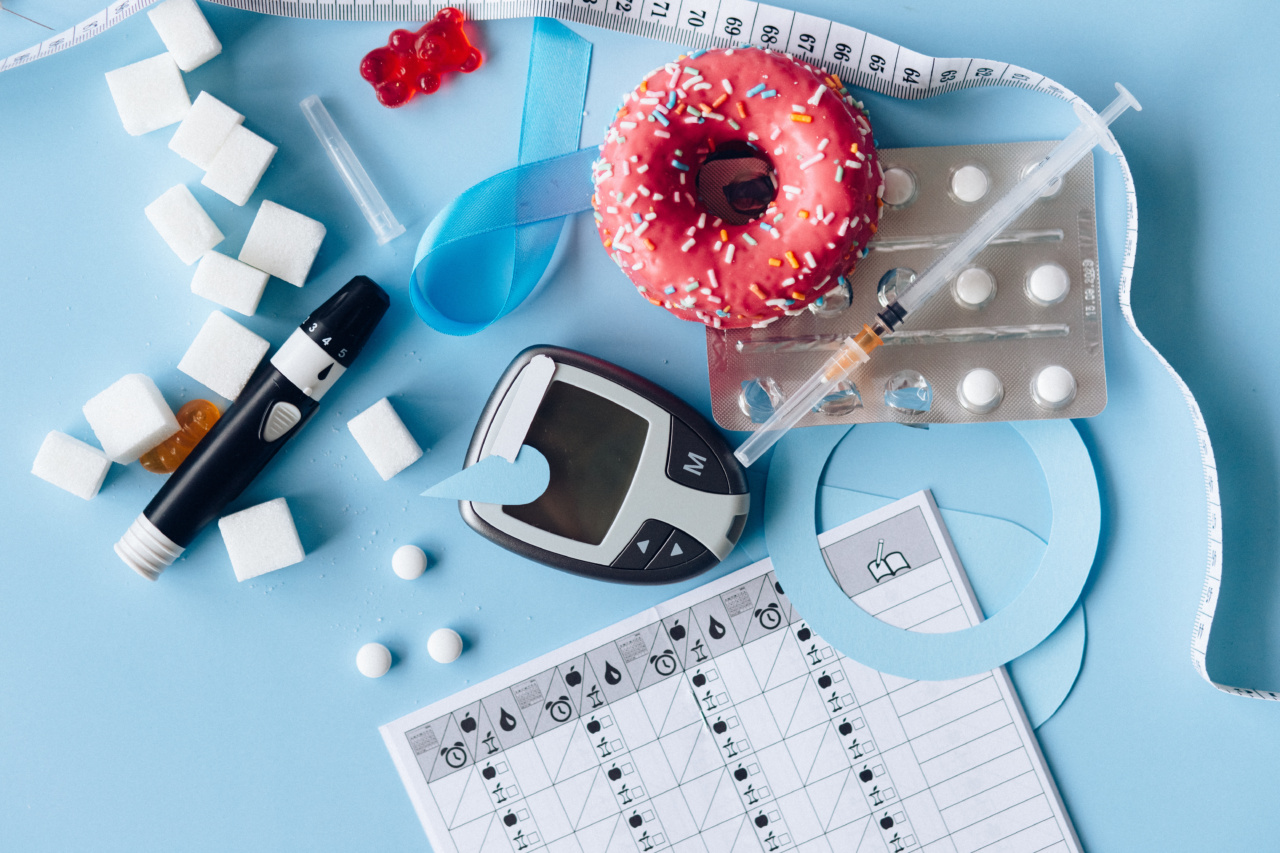Insulin resistance is a condition characterized by the body’s cells becoming less responsive to the effects of insulin, resulting in elevated blood glucose levels.
This metabolic disorder is a precursor to type 2 diabetes, a chronic illness characterized by high blood sugar levels. In this article, we will explore various strategies for managing insulin resistance and diabetes effectively.
The Role of Insulin in the Body
Insulin is a hormone produced by the pancreas that plays a crucial role in regulating blood sugar levels.
Its primary function is to facilitate the transport of glucose from the bloodstream into the cells, where it can be used for energy production or stored for future use. Insulin resistance occurs when the body’s cells become less sensitive to insulin, leading to a buildup of glucose in the bloodstream.
Dietary Approaches to Managing Insulin Resistance and Diabetes
Proper nutrition is essential for managing insulin resistance and diabetes. A balanced diet can help regulate blood sugar levels, promote weight loss, and improve overall health. Here are some dietary recommendations:.
1. Limit Carbohydrate Consumption
Carbohydrates have the most significant impact on blood sugar levels. It is crucial to consume carbohydrates in moderation and choose sources that have a low glycemic index.
This means opting for whole grains, legumes, and non-starchy vegetables rather than refined carbohydrates and sugary foods.
2. Include Protein in Every Meal
Protein-rich foods have a minimal effect on blood sugar levels and can help control appetite. Incorporate lean sources of protein such as poultry, fish, tofu, and legumes into your meals to promote satiety and stable blood sugar levels.
3. Focus on Healthy Fats
Healthy fats, such as avocados, nuts, and olive oil, can help improve insulin sensitivity and blood sugar control. Include these fats in your diet while maintaining portion control to reap their benefits.
4. Avoid Sugary Beverages
Sugary beverages, including soda and fruit juices, can cause a rapid spike in blood sugar levels. Opt for water, unsweetened tea, or coffee instead.
5. Practice Portion Control
Managing portion sizes is crucial for blood sugar control and weight management. Use smaller plates, be mindful of portion sizes, and listen to your body’s hunger and fullness cues.
Lifestyle Modifications to Support Insulin Sensitivity
In addition to dietary changes, certain lifestyle modifications can significantly improve insulin sensitivity and diabetes management. Here are some strategies to consider:.
1. Engage in Regular Physical Activity
Exercise has been shown to improve insulin sensitivity and promote weight loss. Aim for at least 150 minutes of moderate-intensity aerobic activity per week, along with strength training exercises.
2. Maintain a Healthy Weight
Excess weight, particularly abdominal fat, contributes to insulin resistance. Losing weight, even a small amount, can improve insulin sensitivity and glycemic control.
3. Manage Stress Levels
Chronic stress can disrupt blood sugar levels and contribute to insulin resistance. Explore stress management techniques such as meditation, yoga, deep breathing exercises, or engaging in hobbies.
4. Get Sufficient Sleep
Poor sleep quality and duration have been linked to insulin resistance and an increased risk of developing type 2 diabetes. Aim for 7-8 hours of restful sleep each night.
Medical Interventions for Diabetes Management
While lifestyle modifications are crucial for managing insulin resistance and diabetes, sometimes medical interventions are necessary. Here are some medical options commonly used:.
1. Oral Medications
For individuals with type 2 diabetes, oral medications may be prescribed to help lower blood sugar levels. These medications work in various ways, such as improving insulin sensitivity or reducing glucose production in the liver.
2. Insulin Therapy
Insulin therapy is crucial for individuals with type 1 diabetes and may be necessary for some individuals with type 2 diabetes. It involves injecting insulin into the body to regulate blood sugar levels effectively.
3. Blood Sugar Monitoring
Regular blood sugar monitoring is essential for individuals with diabetes. This allows for better understanding and management of blood sugar levels to prevent complications.
4. Diabetes Education and Support
Participating in diabetes education programs and support groups can provide valuable knowledge and emotional support for managing the condition effectively.
These programs offer guidance on meal planning, exercise, medication management, and coping strategies.
Conclusion
Managing insulin resistance and diabetes requires a multifaceted approach, incorporating dietary changes, lifestyle modifications, and, in some cases, medical interventions.
By adopting a balanced diet, engaging in regular physical activity, and making sustainable lifestyle changes, individuals can effectively manage their insulin resistance and diabetes, promoting overall health and well-being.




























